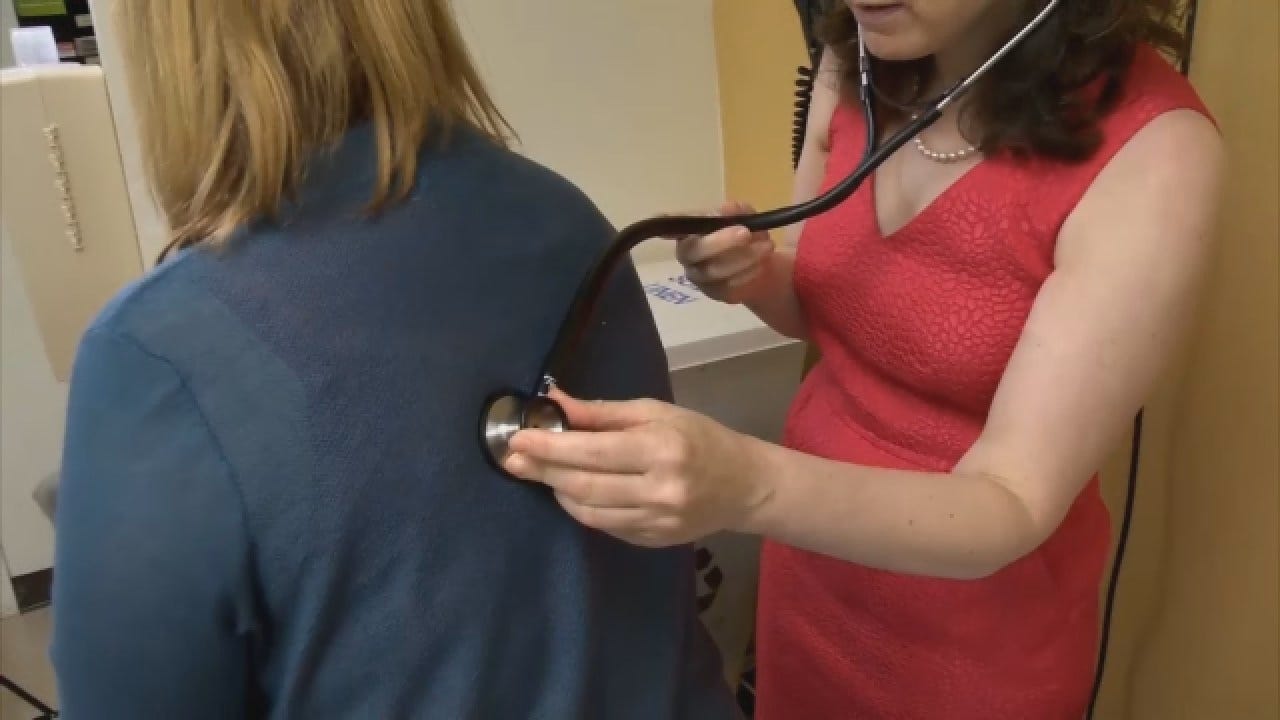Physical Health Begins In The Mind, New Research Snows
<p>Have you ever heard someone say "Attitude is everything?" New research shows that might actually be true. </p>Friday, September 8th 2017, 3:20 pm
Have you ever heard someone say "Attitude is everything?" New research shows that might actually be true.
When we think about health, many of us focus on the physical, like fitness and healthy eating. Studies show that's only part of the equation.
Researchers at OU-Tulsa are looking at the connections between the mind and body and applying them to real life. Dr. Martina Jelley is a professor of internal medicine.
She has been working with other disciplines to help treat patients better.
"I think that's really the direction that especially primary care and internal medicine, family medicine, is going is more of a team-based care in realizing that it's not just one-on-one the doctor and the patient," Dr. Jelley said.
Factors like socioeconomic circumstances, trauma, and mental state can all affect a person's physical health.
Julie Miller-Cribbs is the director of the School of Social Work at OU-Tulsa and teaches medical professionals about trauma informed care, particularly with those who have suffered from childhood trauma.
"Physicians, in particular, want to get to the matter at hand, which is a health concern, right? But if you really stop and talk to physicians they say, they want to get to the matters of health, but all of this other stuff is in the room," Miller-Cribbs said.
This type of approach was Something Dr. Jelley says physicians were missing.
"And you realize, you can't give them a pill to fix that trauma, and so it really is something where you have to reach out to others to try to do a team-based approach," Dr. Jelley said.
Miller-Cribbs says studies show people who have experienced trauma - specifically adverse childhood experiences like abuse - are more likely to suffer from disease.
"What do people who are traumatized do? They smoke, you know, they drink and they eat often to cope with stress," said Julie Miller-Cribbs. "They're self-medicating, exactly."
Dr. Chan Hellman, psychologist, studies the effects of hope on people's well-being. He says increasing someone's ability to hope could have dramatic effects on their health.
"What we find is that hope seems to be the single best predictor of well-being for both children and adults living in adverse conditions," Dr. Hellman said.
"Hope serves as a buffer to adversity and stress that people experience," he said. "Hope also predicts adaptive behaviors like health-seeking behaviors or compliance with medical requests or requirements from physicians."
"In spinal chord injuries or in cancer survivors, hope is a significant predictor of their physical health and longevity."
The question is, how do you change someone's attitude - whether affected by trauma or circumstances? Turning apathy into hope, or pessimism into optimism?
"I think it starts with setting realistic goals," said Dr. Chan Hellman, psychologist and professor at OU-Tulsa.
Dr. Hellman says it's good to set daily goals that are attainable and that can help individuals reach larger future goals. And have a plan for how to problem solve when barriers get in the way.
More Like This
September 8th, 2017
March 22nd, 2024
March 14th, 2024
February 9th, 2024
Top Headlines
April 19th, 2024
April 19th, 2024
April 19th, 2024











